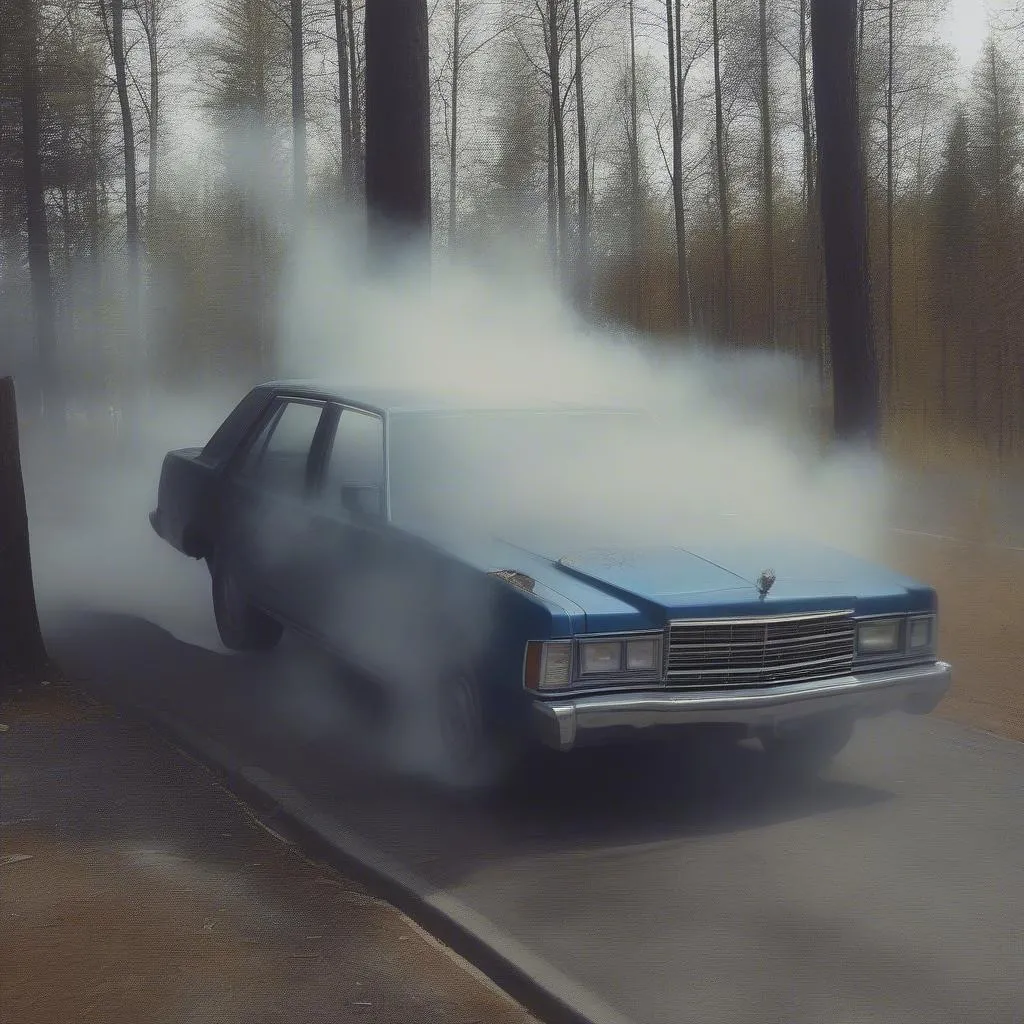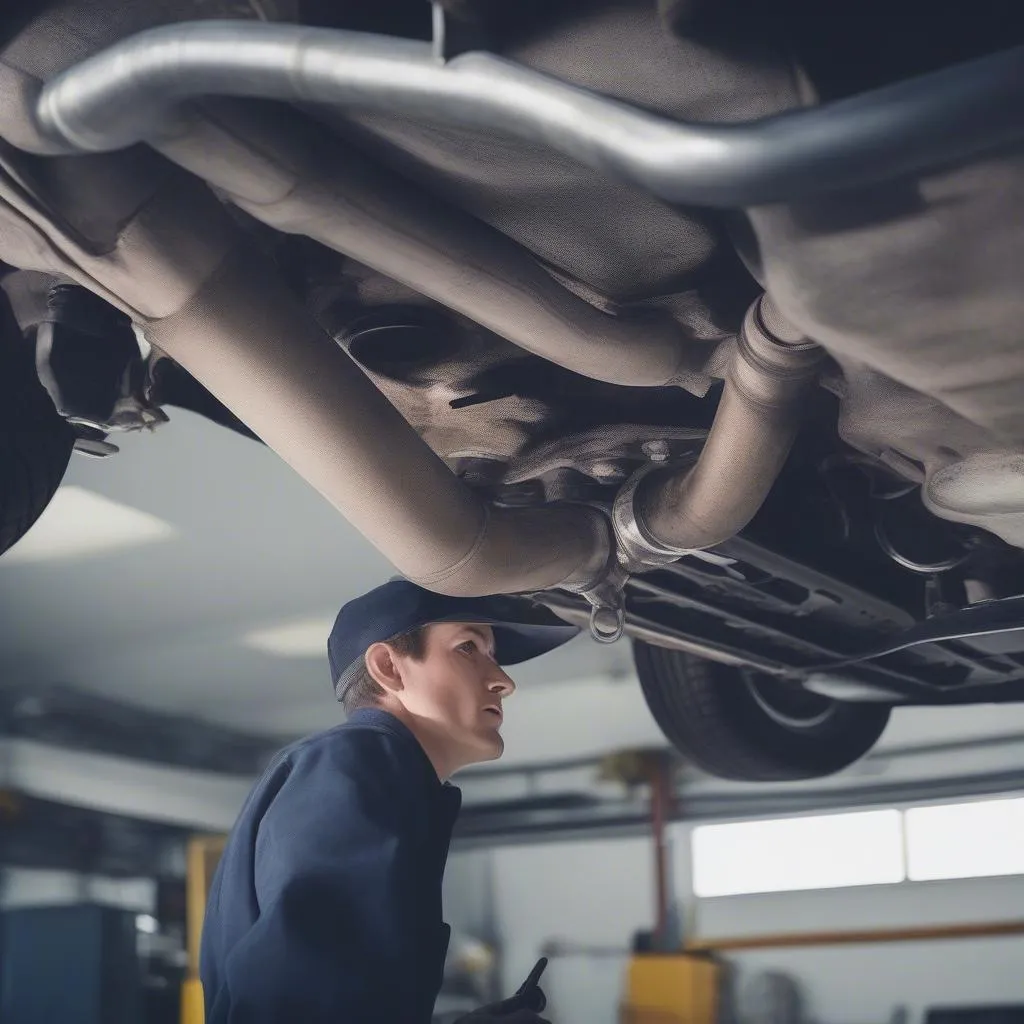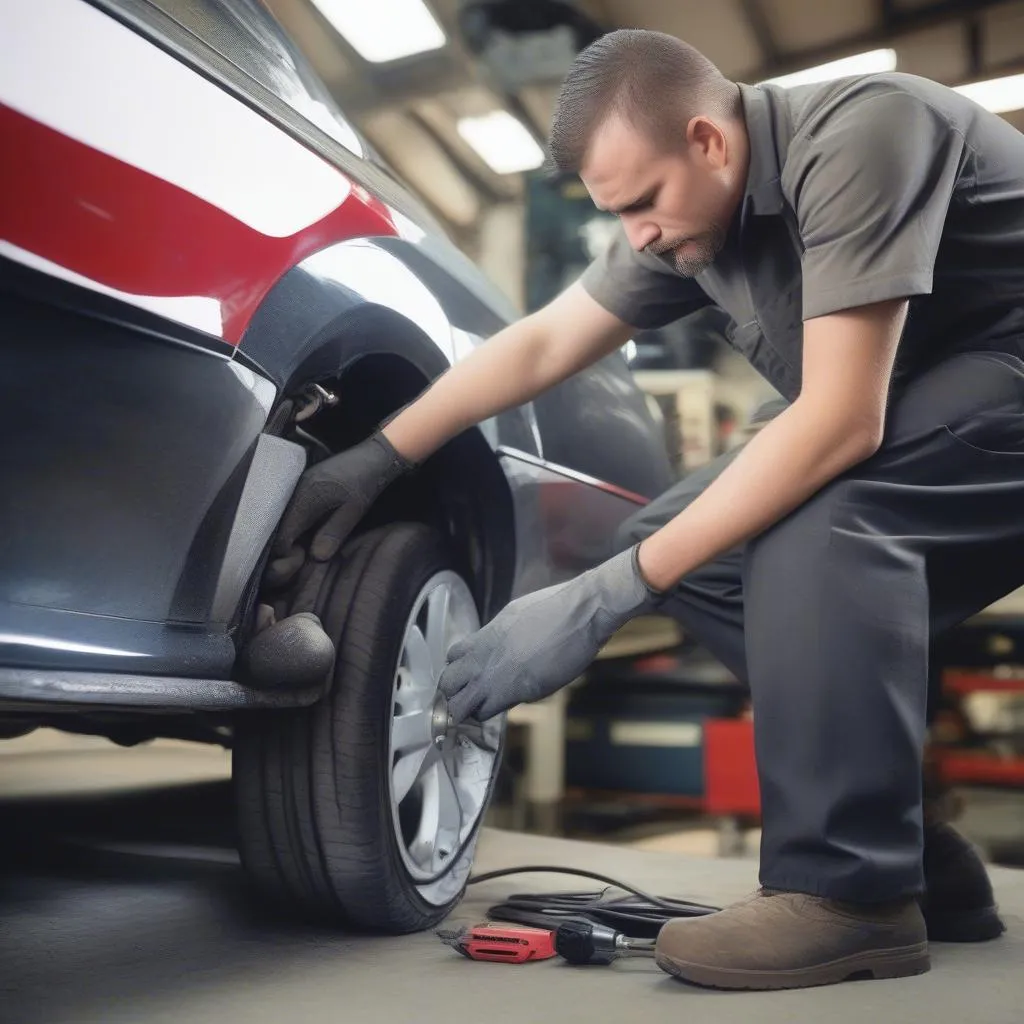Have you ever been driving down the road and suddenly noticed a strange, pungent smell? A smell that reminds you of burning rubber, but not quite? This is a common occurrence for many car owners, and it can be a bit concerning. The good news is, it’s often a sign of a relatively simple problem that’s easy to fix. In this article, we’ll delve into the world of “Smells Like Exhaust In Car” – exploring the different causes, solutions, and tips for keeping your car running smoothly.
What Does It Mean When You Smell Exhaust In Your Car?
Let’s start by dissecting the situation. A strong, pungent smell of exhaust fumes in your car is often a sign of a problem somewhere in the car’s exhaust system. It’s crucial to understand why this is happening, as it can affect your vehicle’s performance, efficiency, and safety.
From a car mechanic’s perspective: This smell can point to several possible culprits, including a leak in the exhaust system, a faulty catalytic converter, or even a clogged exhaust pipe.
From an engineering standpoint: The exhaust system is designed to carry away harmful gases produced by your car’s engine. If these gases leak into the cabin, it’s a sign that the system is not working properly. This leak can be caused by a number of factors, like corrosion, a cracked pipe, or even a poorly installed aftermarket exhaust system.
From an economic perspective: This smell can signal a potential breakdown on the horizon. Ignoring a leak can lead to more serious problems later, requiring more extensive repairs and potentially costly downtime.
What to Do When You Smell Exhaust In Your Car
If you notice a lingering smell of exhaust in your car, here are some steps you can take:
1. Park Your Car: First and foremost, pull over to a safe location and shut off your engine. Safety should always be your top priority.
2. Look For Obvious Signs: Check for any visible leaks, damage, or cracks in the exhaust pipes or muffler. This can give you a good indication of the problem.
3. Investigate Further: If you can’t spot any visible problems, you may need to consult a professional. A skilled mechanic can inspect your exhaust system for leaks, check the catalytic converter, and pinpoint the source of the exhaust fumes.
4. Consider Your Exhaust System: Exhaust systems are designed for a specific vehicle and engine type. If you’ve recently had work done on your exhaust, make sure it’s properly installed and compatible with your car. Improperly fitted parts can lead to leaks.
5. Inspect the Engine: Even though the problem is likely in the exhaust system, it’s a good idea to check your engine compartment for any signs of damage or leaks that might be contributing to the issue.
6. Get Expert Advice: Don’t hesitate to seek professional help. A licensed mechanic can diagnose the problem accurately and provide you with a repair estimate.
What Happens If I Ignore the Exhaust Smell?
Ignoring the smell of exhaust in your car can lead to serious consequences. The most common are:
-
Health Risks: Carbon monoxide is a poisonous gas that can be deadly if inhaled in significant amounts. A leak in your exhaust system can allow carbon monoxide to enter your car’s cabin, putting you and your passengers at risk.
-
Environmental Damage: Exhaust fumes contain harmful pollutants that can contribute to air pollution. Leaking exhaust can release these pollutants into the atmosphere, harming the environment.
-
Engine Damage: Exhaust leaks can restrict airflow through the exhaust system, leading to decreased engine performance and even damage to your engine over time.
-
Safety Concerns: A severely damaged exhaust system can become detached, creating a dangerous road hazard for yourself and others.
Common Questions:
Q: Why does my car smell like exhaust inside after driving through a tunnel?
This is a common occurrence and is usually due to a combination of factors:
- Tunnel Ventilation: Tunnels often have limited ventilation, so exhaust fumes from other vehicles can build up quickly.
- Positive Pressure: As your car speeds through a tunnel, air pressure builds inside the cabin, making it more likely for exhaust fumes to leak in through any small openings.
- Windshield and Window Seals: Over time, these seals can wear down, making it easier for exhaust fumes to enter the car.
Q: How often should I get my exhaust system checked?
It’s a good idea to have your exhaust system inspected annually. This is especially important if you notice any unusual smells, sounds, or leaks. A preventive check can help catch problems early on before they become serious.
Q: How much does it cost to fix a leaking exhaust system?
The cost of repair can vary depending on the severity of the leak, the make and model of your car, and the location of the leak. It’s best to consult with a mechanic for an accurate estimate.
Q: What should I do if I suspect my car’s exhaust system needs repair?
Contact a trusted mechanic for a diagnosis and repair estimate. They can help you understand the problem and the best course of action.
Other Related Articles:
- Check Engine Light On Before Starting Car: This article discusses the importance of addressing check engine lights promptly.
- OBD MIL Status: Learn how to interpret the OBD MIL status and understand the meaning of different codes.
- Actron OBD-II PocketScan Codes: Explore the benefits and features of the Actron OBD-II PocketScan.
Contact Us:
Don’t hesitate to reach out to us if you have any further questions about your car’s exhaust system. Our team of certified automotive technicians is available 24/7 to assist you. Contact us via Whatsapp: +84767531508.
Conclusion:
Smelling exhaust in your car is never a good sign. It could be a minor issue or a sign of a more serious problem that requires professional attention. It’s best to address the issue as soon as possible to prevent further damage and ensure the safety and well-being of you and your passengers.
Let us know in the comments below if you have any questions or experiences related to exhaust smells in your car. We’d love to hear from you!
 Exhaust fumes in the car
Exhaust fumes in the car
 Exhaust system inspection
Exhaust system inspection
 Mechanic diagnosing a car
Mechanic diagnosing a car
